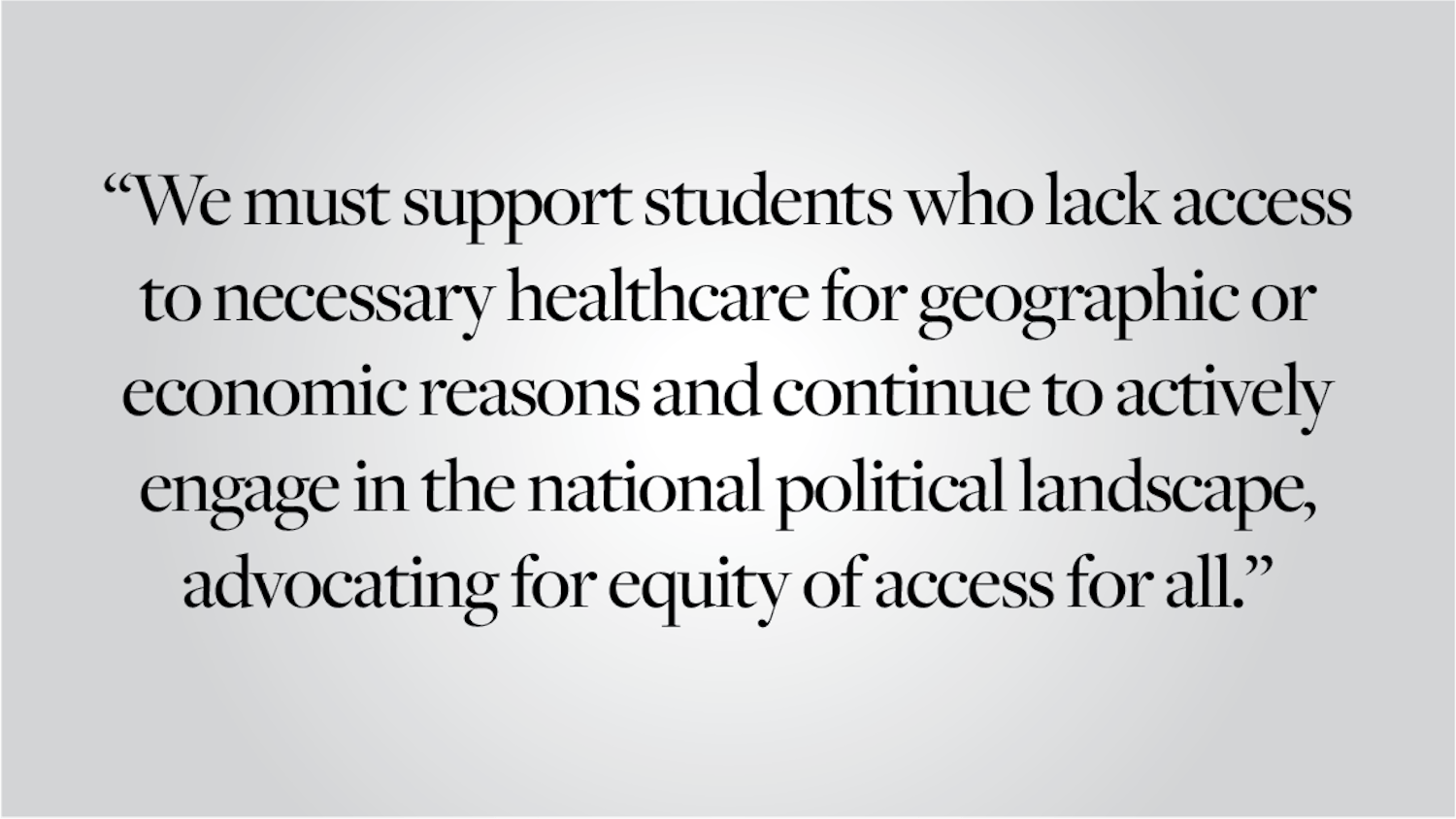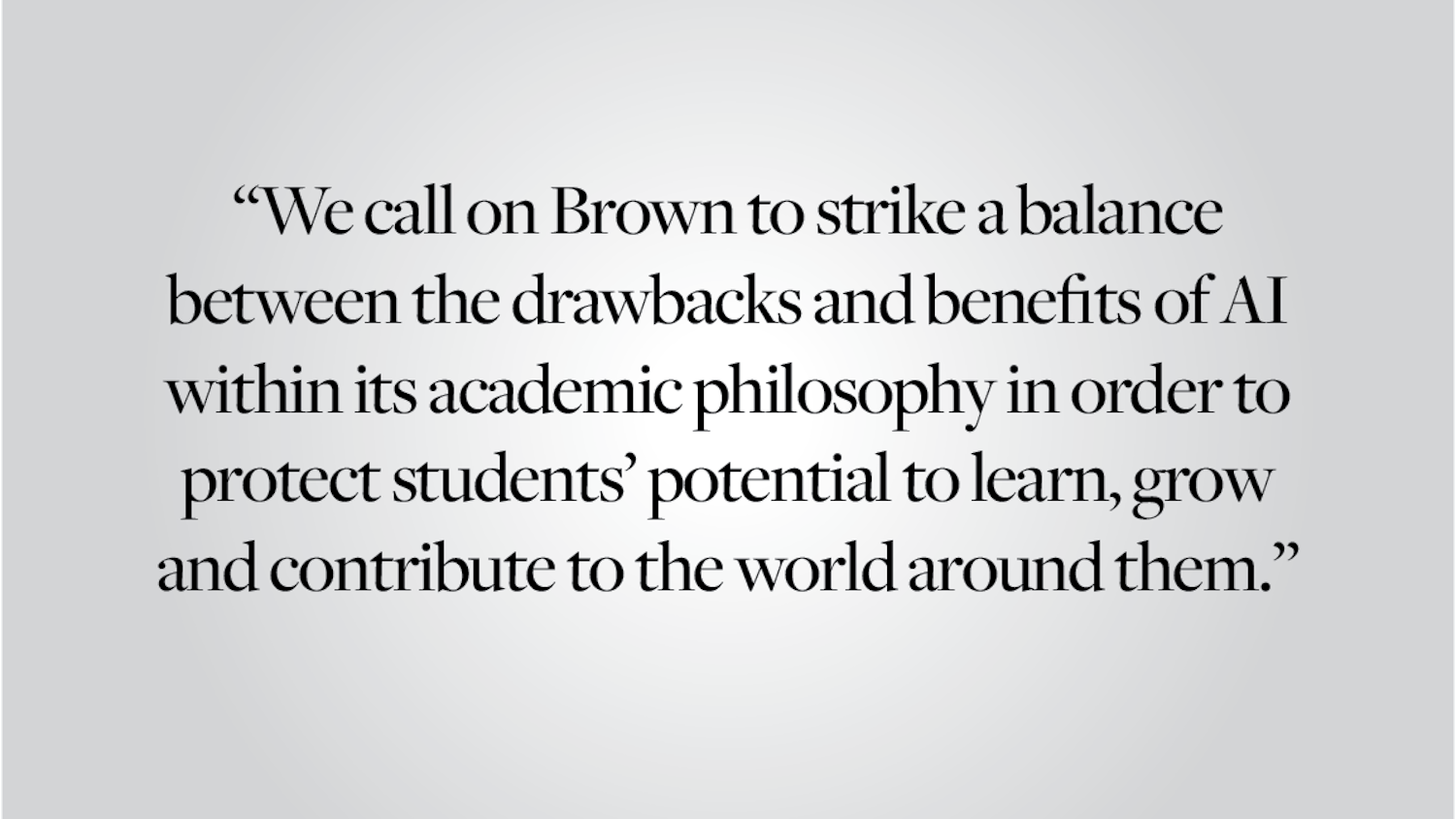According to the new online federal tool College Scorecard, Brown students who receive federal financial aid earn the lowest mean salaries 10 years after starting college out of their counterparts at all Ivy League institutions. Concerns about the limited sample size — given that a significant number of students in the Ivies are not on any financial aid — aside, these numbers appear troubling. To a casual observer, this ranking might seem to be a failure of sorts: Are Brown graduates simply unable to earn as much as our Ivy League counterparts because our credentials are not as appealing to potential employers? Does this somehow indicate that a Brown education is the lowest-quality in the Ivy League or that our graduates are less able than graduates of peer institutions to secure high-paying careers? Yet upon further reflection on some of the factors responsible for Brown students’ lower mean salaries, we find it to be not as distressing as initially believed.
A clear reason the average Brown alum earns less than other Ivy graduates is that the University sends significantly fewer students into finance and consulting — which are among the highest-paying fields — than other Ivy League schools. While in 2014, 41 percent of Penn’s graduating class, 37 percent of Cornell’s and 31 percent of Harvard’s went to work in finance and consulting, only 21 percent of Brown’s graduating class entered those fields. Tracy Barnes, director of institutional research, told The Herald that more Brown students also enter the nonprofit sector — which tends to pay less — than other Ivy League graduates. This information perhaps indicates that Brown students are less likely to pursue financially lucrative career options and instead find meaningful work in different fields.
Ivy League schools have come under increasing scrutiny for breeding stress and pressure and promoting the idea that success can be equated with earnings after graduation. Amy Binder, a professor of sociology at the University of California, San Diego, told the Washington Monthly that many students at elite universities “are flocking to Wall Street and consulting firms less by choice than because of a rigged recruiting game that the schools themselves have helped to create.” Even if it is not surprising that many students at the wealthiest schools in the country are fixated on maximizing their financial outcomes, it is sad that many students may choose to forgo their passions and intellectual growth for maximum profit.
Brown students are absolutely susceptible to this trend, despite the school’s emphasis on liberal education and personal growth. In 2013, The Herald reported on an increase in the number of students who had declared an economics concentration. Many students interviewed expressed the sentiment that their concentration choice was “motivated by a desire for post-collegiate job security and a growing interest in quantitative analysis.” But it is clear that in comparison with peer institutions, Brown has fewer students making these choices.
Of course, we celebrate all students who pursue careers they are passionate about, including those in finance and consulting. It is a sad state of affairs, however, when students turn to these fields because they feel it is their only option, or when they abandon other passions in order to pursue a job that feels safe. If the fact that Brown alums have the lowest mean salary is reflective of the varied careers that Brown graduates pursue due to their interests and passions, we view it as a good thing rather than a failing.
Editorials are written by The Herald’s editorial page board: its editors, Manuel Contreras ’16 and Meghan Holloway ’16, and its members, Emma Axelrod ’18, Noah Fitzgerel ’17 and Aranshi Kumar ’17. Send comments to editorials@browndailyherald.com.




